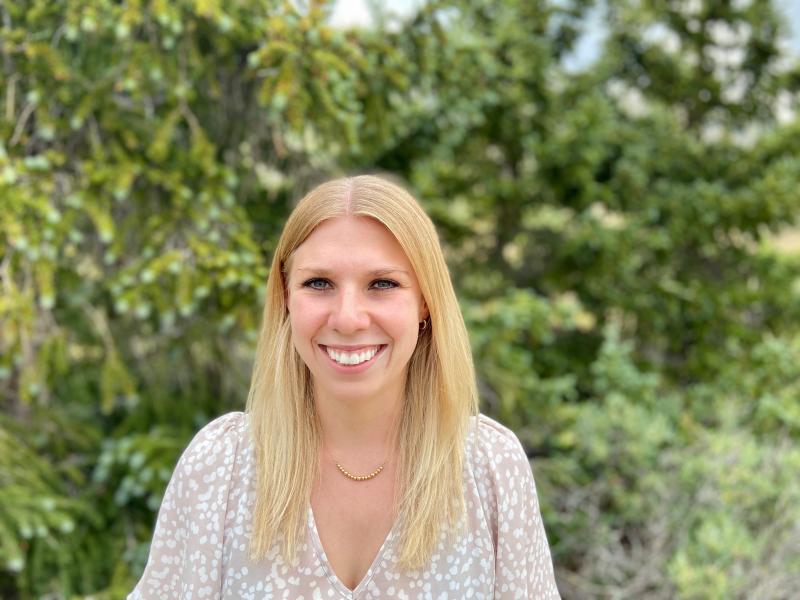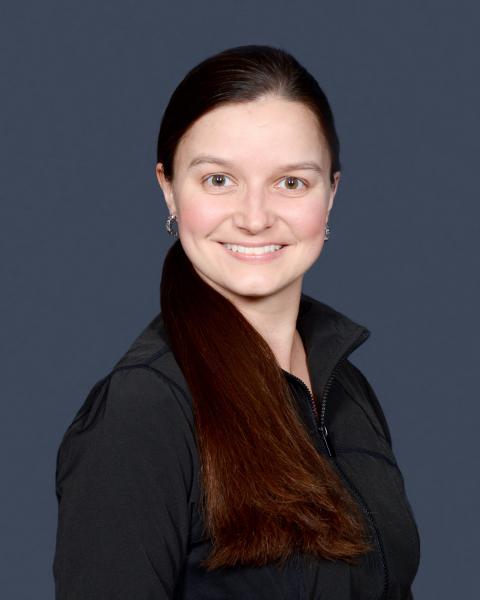American Psychological Association Division 50

Victoria Votaw, MS
The University of New Mexico
Victoria (Tori) Votaw, M.S., is a clinical psychology candidate at the University of New Mexico. Tori recently received two grants to support her dissertation research, including an F31 training grant from NIAAA and an APA Division 50 Student Research Grant. Her dissertation project is titled “Validating Reward and Relief Drinking Phenotypes: A Multimethod Assessment.” Reward and relief drinking is a promising phenotype for characterizing heterogeneity in alcohol use disorder (AUD) and personalizing AUD treatment. This phenotype is defined as the extent to which individuals seek alcohol to enhance positive experiences and social interaction (reward drinking) versus the extent to which individuals seek alcohol to relieve negative emotional and somatic states (relief drinking). The proposed study will use a multimethod approach, including advanced secondary data analysis and ecological momentary assessment, to refine and validate a brief measure of reward/relief drinking that can be easily administered and scored in clinical practice. Ultimately, this work aims to advance AUD precision medicine and future research examining the reward/relief drinking phenotype. Tori is thankful for the support of Division 50, as the funds from the Student Research Grant will help to pay dissertation participants. You can follow her work on Twitter, @VictoriaVotaw.

Holly Boyle, MA, ScM
Brown University
Holly Boyle is a doctoral student in the Department of Behavioral and Social Health Sciences at Brown University. She was recently awarded a Division 50 Student Research Grant for one of her dissertation projects titled, Simultaneous alcohol and marijuana (SAM) use: Exploration of determinants, mechanisms, and consequences. Alcohol and marijuana are two of the most commonly used substances among young adults, and most individuals who use both substances sometimes use them simultaneously. Given the high prevalence of simultaneous alcohol and marijuana (SAM) use, it is important to identify SAM-specific consequences and predictors. The prototype willingness model (PWM) provides a framework for understanding SAM use by highlighting important psychosocial predictors of and pathways to SAM use. Holly’s project will characterize daily-level SAM use and examine PWM-informed pathways of SAM use and related consequences among young adults, using a daily diary study. Seventy-five participants (age 18-29) will self-monitor alcohol, marijuana, SAM use, consequences, and related constructs for 30 days, completing two surveys daily. This project will provide knowledge about predictors and consequences of SAM use and determine how SAM use relates to consumption. Her mentorship team includes Drs. Jennifer Merrill, Kate Carey, and Kristina Jackson.

Maya Zegel, MA
The University of Houston
Maya Zegel, M.A. is a fourth-year clinical psychology doctoral student at the University of Houston. Working with Anka Vujanovic, Ph.D. in the Trauma and Stress Studies Center (TaSSC), Maya has charted a career path examining mechanisms that underly the comorbidity of PTSD and substance use, with a particular focus on alcohol use. She was recently awarded the Presidential Selection for the APA Division 50 Society of Addiction Psychology Student Research Grant to support her research project titled, “Daily State-Like Distress Tolerance and Alcohol Use Motivation Among Hazardous Drinkers with Posttraumatic Stress Disorder.” This project will use ecological momentary assessment to examine temporal relationships between PTSD symptoms, alcohol use motives and consumption, and distress tolerance.

Kelsey Piersol, MS
Rutgers University—New Brunswick
Kelsey Piersol, MS, is a third-year doctoral candidate at Rutgers University—New Brunswick in the Kinesiology and Applied Physiology program. Under the mentorship of Dr. Jennifer Buckman, Kelsey was awarded a Division 50 Student Research Grant for her project, “Examining the Role of Alcohol in Women’s Somatic States and Bodily Experiences: A Novel Approach.” Women experience disproportionate negative physical health effects from alcohol consumption compared to men, despite consuming less total alcohol volume across the lifespan. Research supports the potential impact of cyclical ovarian hormone fluctuations on drinking decisions and health outcomes among individuals who menstruate. Kelsey’s project seeks to determine whether concurrent menstrual-related physical sensations (e.g., lower abdominal cramping or heightened sexual interest) also contribute. This will serve as an initial step for determining the role of women’s somatic sensations and bodily experiences in alcohol use behaviors and proximal consequences. Kelsey aims to create and validate a survey to assess the occurrence, salience, and valence of somatic experiences during alcohol intoxication and hangover. From the comprehensive inventory, a brief survey will be derived for use during ecological momentary assessment to examine how somatic cues influence in-the-moment alcohol use decisions and proximal consequences across the menstrual cycle.

Resources are available for those struggling with addiction and numerous effective treatments exist. Whether you are looking for help for yourself or a loved one, we encourage you to seek out help.